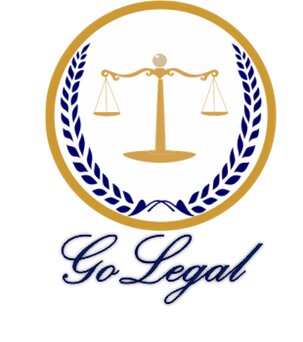Best Guardianship Lawyers in Zapopan
Share your needs with us, get contacted by law firms.
Free. Takes 2 min.
List of the best lawyers in Zapopan, Mexico
About Guardianship Law in Zapopan, Mexico
Guardianship in Zapopan, Mexico involves the legal process by which a court appoints a guardian to manage the affairs of a minor or an incapacitated adult. This person, known as the guardian, assumes responsibility for the personal care and financial well-being of the individual, referred to as the ward. Guardianship is established through legal proceedings in family court and is designed to protect the interests of the ward by ensuring they have a competent person to make important life decisions on their behalf.
Why You May Need a Lawyer
Several scenarios might necessitate seeking legal counsel for guardianship matters. These include:
- Establishing guardianship over a minor if both parents are deceased or incapacitated.
- Appointing a guardian for an elderly or disabled person who is no longer capable of managing their own affairs.
- Resolving disputes among family members about who should be the guardian.
- Handling complex legal documentation and court procedures.
- Ensuring compliance with local laws and regulations regarding the responsibilities and rights of the guardian.
- Providing representation in court to advocate for the best interests of the prospective ward.
Local Laws Overview
Key aspects of local guardianship laws in Zapopan, Mexico include:
- Legal Framework: Guardianship laws are governed by the Civil Code of the State of Jalisco, which encompasses Zapopan.
- Types of Guardianship: There are different forms of guardianship, including guardianship of a minor and guardianship of an incapacitated adult.
- Appointment Process: Guardians are appointed by the family court after a thorough vetting process, which may include background checks and home evaluations.
- Duties of a Guardian: Guardians are legally obligated to act in the best interest of the ward, making decisions about their healthcare, education, and finances.
- Reporting Requirements: Guardians might be required to submit periodic reports to the court detailing the well-being and financial status of the ward.
- Termination of Guardianship: Guardianship can be terminated by the court if it is no longer necessary or if the guardian is found to be unfit.
Frequently Asked Questions
1. What is the purpose of guardianship?
The purpose of guardianship is to ensure that minors or incapacitated adults who cannot care for themselves have a responsible and legally authorized individual to make decisions on their behalf.
2. Who can be appointed as a guardian?
Generally, any competent adult over the age of 18 can be appointed as a guardian, provided they do not have a criminal record and are deemed fit to undertake the role by the court.
3. How do I start the guardianship process?
You would typically start by filing a petition with the family court in Zapopan, detailing the necessity for guardianship and providing evidence to support your request.
4. Can guardianship be contested?
Yes, guardianship can be contested by family members or other interested parties who believe that the proposed guardian is not suitable for the role.
5. What responsibilities does a guardian have?
A guardian is responsible for the personal care, education, and financial management of the ward. This can include making medical decisions, handling finances, and ensuring the ward's overall well-being.
6. How long does guardianship last?
Guardianship lasts until it is terminated by the court. For minors, it usually continues until they reach the age of majority. For incapacitated adults, it continues until they regain capacity or another arrangement is made.
7. Is it necessary to have a lawyer?
While not legally required, having a lawyer can significantly simplify the process, ensuring that all legal requirements are met and helping to navigate any complications that may arise.
8. Can a guardian make all decisions for the ward?
Guardians have a broad range of decision-making power but must always act in the best interests of the ward. Some decisions may still require court approval.
9. What if I can't find a suitable guardian?
If no suitable guardian can be found among family or friends, the court may appoint a public guardian or a professional guardian to take on the responsibility.
10. Are there alternatives to guardianship?
Yes, alternatives such as power of attorney or conservatorship might be considered, depending on the specific circumstances and needs of the ward.
Additional Resources
For more information, you may find the following resources helpful:
- Family Court of Zapopan: Consult with the local family court for forms and procedural guidance.
- Local Attorneys Specializing in Family Law: Seek out experienced lawyers who can provide specialized legal advice.
- Public Guardianship Programs: State-run programs offering guardian services for those without family support.
- Social Services: Governmental bodies that can assist with the care and support of minors and incapacitated adults.
Next Steps
If you need legal assistance in guardianship, consider taking the following steps:
- Consult with a family law attorney in Zapopan who specializes in guardianship cases.
- Gather necessary documentation, such as medical records or financial statements, to support your guardianship petition.
- File a petition with the family court and be prepared to attend any required hearings.
- Follow the advice and guidance of your attorney throughout the guardianship process to ensure compliance with all legal requirements.
Taking these steps can help you navigate the complex legal landscape of guardianship and provide the best care and protection for your loved one.
Lawzana helps you find the best lawyers and law firms in Zapopan through a curated and pre-screened list of qualified legal professionals. Our platform offers rankings and detailed profiles of attorneys and law firms, allowing you to compare based on practice areas, including Guardianship, experience, and client feedback.
Each profile includes a description of the firm's areas of practice, client reviews, team members and partners, year of establishment, spoken languages, office locations, contact information, social media presence, and any published articles or resources. Most firms on our platform speak English and are experienced in both local and international legal matters.
Get a quote from top-rated law firms in Zapopan, Mexico — quickly, securely, and without unnecessary hassle.
Disclaimer:
The information provided on this page is for general informational purposes only and does not constitute legal advice. While we strive to ensure the accuracy and relevance of the content, legal information may change over time, and interpretations of the law can vary. You should always consult with a qualified legal professional for advice specific to your situation.
We disclaim all liability for actions taken or not taken based on the content of this page. If you believe any information is incorrect or outdated, please contact us, and we will review and update it where appropriate.









